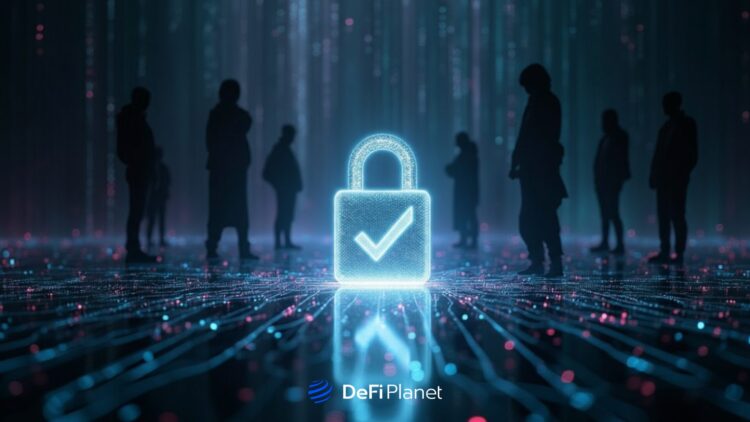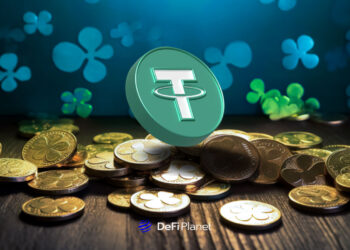In the rapidly evolving landscape of blockchain technology, zero-knowledge proofs (ZKPs) have emerged as a transformative force that promises to reshape how we think about privacy, scalability, and verification in digital systems. This cryptographic breakthrough represents a fundamental shift towards a future where trust can be established without sacrificing privacy, and where computational verification can scale to meet global demand.
Rethinking Trust in Digital Systems
Traditional digital systems have long operated on a simple principle: to verify something, you must see it. From e-commerce to banking, we rely on central intermediaries (such as banks, governments, social media platforms, and corporations) to verify identity, settle transactions, and enforce contracts. But these intermediaries often introduce friction, inefficiency, and privacy concerns.
At its core, blockchain replaces centralized trust with distributed verification and radical transparency. A Bitcoin transaction doesn’t require a bank to confirm balances; instead, it’s verified by a decentralized network following cryptographic rules, with transactions visible to the world. Ethereum extended this paradigm through smart contracts, enabling programmable trust without intermediaries.
However, this openness has limitations. Every transaction is transparent, creating tension between verifiability and privacy. As blockchains scale, they face bottlenecks as processing thousands of transactions per second with global consensus is both costly and slow. Trust has been decentralized, but it comes with performance and privacy trade-offs.
Privacy Without Compromise
Zero-knowledge technology is reshaping this landscape, heralding a future of “zero-knowledge everything”. ZKPs enable one party to prove a statement is true without revealing any information beyond its validity. For example, you can prove you’re over 21 without revealing your date of birth or showing a government-issued document, demonstrate you have sufficient funds without revealing your account balance, or verify creditworthiness without exposing your financial history. ZKPs preserve privacy while ensuring correctness in the verification process.
The implications are profound. In our current digital ecosystem, privacy and functionality exist in constant tension. To use most services, we surrender personal data with little visibility into how it’s used or protected. Zero-knowledge proofs eliminate this false choice through selective disclosure, i.e. proving specific attributes while keeping everything else private.
The technology extends beyond individual privacy to organizational confidentiality. Companies can prove regulatory compliance without exposing proprietary processes or demonstrate the integrity of their algorithms without revealing trade secrets. This creates a new paradigm where transparency and privacy coexist rather than compete.
Scalability Through Cryptographic Innovation
Perhaps even more revolutionary is zero-knowledge technology’s solution to blockchain’s scalability problem. Traditional blockchains face a hard limit: every node must verify every transaction, thus creating bottlenecks as networks expand. Zero-knowledge rollups (zk-rollups) solve this by bundling thousands of transactions off-chain and submitting a single cryptographic proof to the base chain. That proof can be verified almost instantly, preserving security while slashing computational overhead.
Originally conceived in the 1980s, ZKPs became practical only with recent advances in cryptography. They first gained attention with privacy coins like Zcash, which allows users to prove fund ownership without revealing amounts or identities. Today, zk-rollups form the backbone of Ethereum scaling solutions like zkSync and StarkNet, powering DeFi, NFTs, and payment platforms at scale.
This approach transforms blockchain economics. Instead of requiring global consensus on every micro-transaction, networks achieve equivalent security through compact proofs that are orders of magnitude more efficient. Ethereum’s adoption of zk-rollups has pushed throughput from around 15 transactions per second to over 4,000, with costs reduced by more than 99%.
The benefits extend beyond transactions. ZKPs allow complex computations to be verified without re-execution, unlocking sophisticated smart contracts that would otherwise be prohibitively expensive.
Programmable Trust
The true power of zero-knowledge technology lies in its programmability. Modern systems allow developers to create custom proofs for virtually any computational statement, giving rise to entirely new application categories.
Decentralized identity systems enable individuals to maintain data sovereignty while seamlessly interacting with services that require verification. Supply chain applications can prove product authenticity and ethical sourcing without revealing sensitive business relationships. Gaming platforms can verify fair play without exposing game mechanics or strategies.
This capability enables new business models: auditable DeFi platforms, private voting systems where results are auditable without exposing individual ballots, and compliance solutions where financial institutions can prove adherence to regulatory requirements without revealing sensitive data.
Towards Zero-Knowledge Everything
“Zero-knowledge everything” marks a shift from payment-focused proofs toward verifying any digital claim or assertion without exposing underlying data. Users can transact and authenticate without disclosing personal details or storing them in vulnerable databases. Verification becomes more efficient, moving from heavy computation to succinct proofs that allow blockchains to scale to mass adoption.
Proofs can be tailored to specific needs, from identity to governance, or even validating AI models. Together, these advances transform blockchains from simple value ledgers into universal engines of verifiable truth.
Looking Ahead
As zero-knowledge technology matures, we’re entering an era where privacy-preserving verification becomes the norm. Its impact stretches beyond blockchain; for example, enabling machine learning on sensitive data without exposure, or voting systems guaranteeing both secrecy and auditability.
Challenges remain, for example, proof generation is computationally heavy, developer tools are complex, and regulators must balance privacy with oversight. Yet, a breakthrough has been made as we now possess cryptographic tools allowing systems to be private, scalable, and trustworthy simultaneously.
This breakthrough goes beyond technical innovation; it heralds a new philosophy of trust. We no longer face the false choice between relying on institutions or surrendering transparency. What we are seeing in digital interactions is a shift from a model of “trust me” to one of “verify, without knowing more than you need”.
The world has always run on trust. Blockchains taught us that trust could be decentralized. Zero-knowledge proofs now show us that trust can also be private, scalable, and programmable. And in a digital economy defined by data, that could be the most important shift yet.
Olu Omoyele is the founder & CEO of DeFi Planet. He has over two decades of experience in financial regulation and banking risk management. Chain of Thoughts is his monthly column on the cryptoverse.
Disclaimer: This piece is intended solely for informational purposes and should not be considered trading or investment advice. Nothing herein should be construed as financial, legal, or tax advice. Trading or investing in cryptocurrencies carries a considerable risk of financial loss. Always conduct due diligence.
If you would like to read more articles like this, visit DeFi Planet and follow us on Twitter, LinkedIn, Facebook, Instagram, and CoinMarketCap Community.
Take control of your crypto portfolio with MARKETS PRO, DeFi Planet’s suite of analytics tools.”





















